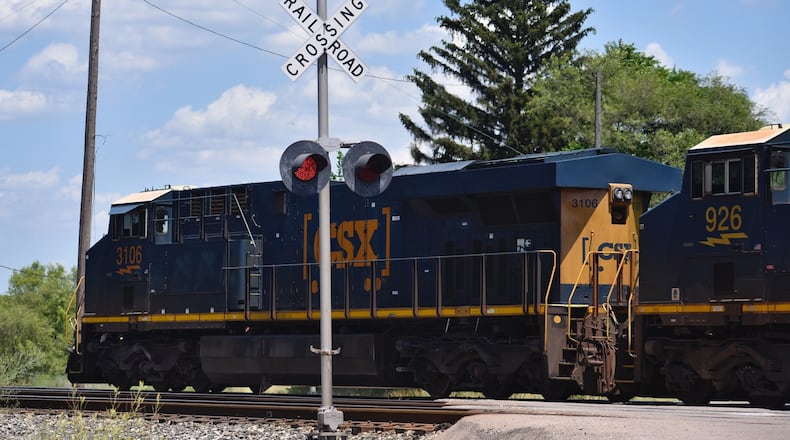The bill proposes a $5,000 fine for a first violation and $10,000 for subsequent violations.
The proposed fines would be significantly more than what railroad companies pay now for being ticketed into court on the charge of obstructing or blocking a railroad crossing.
Since 2012, the Hamilton Municipal Court has issued 31 citations to one of the two freight railroad companies that travel Butler County, and the court has fined both nearly a collective $15,900. Most fines are under $400.
Fairfield Municipal Court has had 36 cases since 2017, six of which are active cases, and collected more than $7,100 in fines, though more than $3,200 has been either waived or dismissed, according to court records. Most fines are $250.
Hall told the Journal-News “there has not been any effort displayed” by the railroads regarding fixing the issue, and the freshman lawmaker said “the issue is actually getting worse in our district, specifically.”
“I know we’ll take this seriously, I know that we’re up against the railroads. I know their track record is very good with winning, but we have to do something. We want to make sure our constituents’ voices are heard,” Hall said.
It’s expected the bill, which was introduced at the end of June, will be assigned to the House Transportation and Public Safety Committee when the General Assembly resumes its session next month. Committee Chair Rep. Brian Baldridge, R-Winchester, said his committee has had previous discussions on trains blocking railroad crossing, including the rail commission speaking with his committee.
Baldridge said there are a number of factors contributing to the problem.
The first is urban sprawl, he said. “What we’re seeing now ... there are a number of subdivisions that weren’t there 20 years ago. And these rails have been there for a long time,” Baldridge said. “So we’re having folks moving out into more rural Ohio and we’re having these subdivisions and populated areas growing, and we’re having longer trains.”
A significant discussion point is how can the state regulate an industry that’s already federally regulated interstate commerce, he said. “I think with speaking with Rep. Hall, there’s a goal of trying to compile this information so we can speak intelligently on how often does this happen, where are the problem areas, and so forth.”
Hamilton City Council recently adopted a resolution supporting House Bill 361. Councilman Michael Ryan said he’s “very hopeful” there will be a House vote on this legislation “and get us some help down here because it is affecting a lot of us in a very negative way, our businesses, our police officers, our firefighters, and our residents.”
About the Author

